Sports
Sondheimer: Let's offer ideas to help make high school sports better
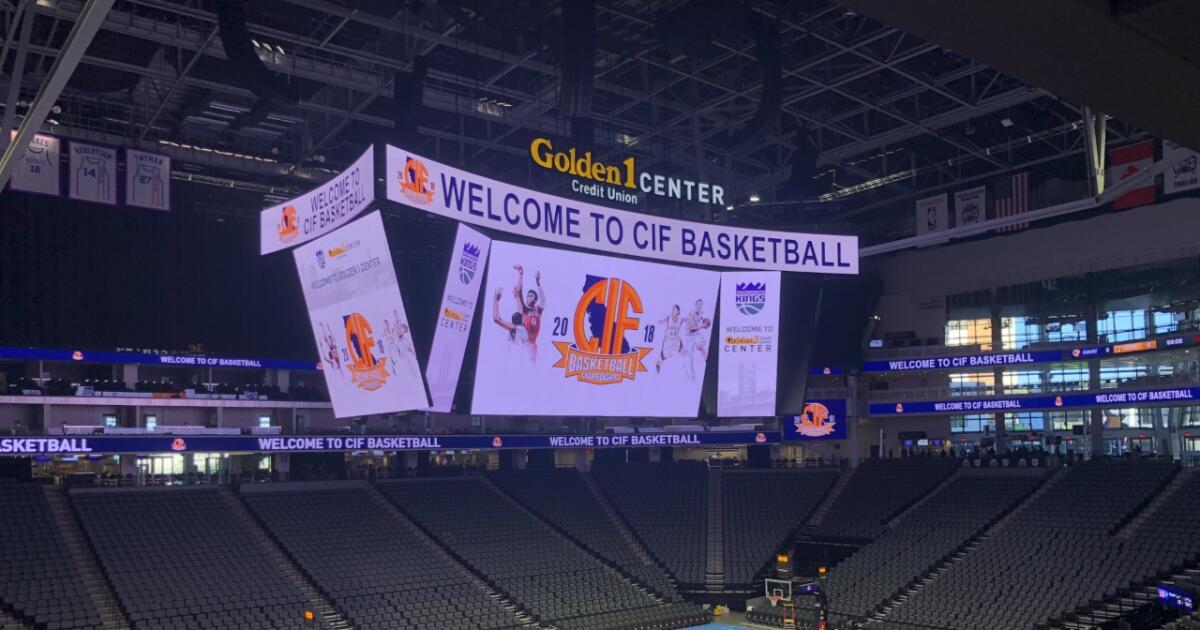
The end of the school year makes it appropriate to review, evaluate and offer observations on the state of high school sports in California. Whether leaders in charge like it or not, they need to hear suggestions and feedback, good and bad, from people without fear of retribution, so let me take a shot.
There have been absurd rumors of some private schools wanting to form their own media networks outside the CIF similar to what the University of Notre Dame does in college. Others want to keep challenging the line between education-based sports and those who want to be part of national championships driven by people seeking to make a buck with fewer rules in place. Good luck and goodbye if that’s what you want.
It’s a tricky time. Club sports remain integral in the college recruiting game, if not more important than ever. Private coaches and “scholarship hustlers” keep seeking greater influence, because that’s how they make money. They’re in competition with teachers and school-based coaches. Lessons learned can be the exact opposite of what is taught at schools, and parents don’t care as long as it leads to a free college education. There’s some exceptional private coaches who should be embraced and others who should carry a sign, “Beware.”
So who is going to fight for the CIF to remain relevant and worthy, and what changes or protections must be maintained? That’s where administrators, coaches, players, parents and even sportswriters need to be to be encouraged to offer ideas, solutions and heart-felt criticism to improve an environment that must not be allowed to look anything like the chaos and wild-west atmosphere of the college sports experience.
Let’s begin with some observations and perceptions that need to be addressed:
Is illegal recruiting is rampant?
We don’t know for sure because the CIF waved the white flag of surrender years ago with rule changes and legal settlements so it would stop getting sued. Section offices don’t accept anonymous allegations and proving recruiting requires a high bar, so everyone assumes it’s happening. What can be done? It goes back to what was mentioned here earlier on how the City Section is cracking down. Multiple transfer students to the same school involving the same sport should trigger a visit from the section office to review paperwork. It’s an easy fix to restore credibility around the state. It’s pure laziness when a section office can’t devote attention to a matter everyone wants addressed
when recruiting is illegal in its bylaws.
The only time NFHS doesn’t have a technical problem is when they process your credit card.
— johnwrenn.eth (@jdwrenn) May 25, 2024
Leveling the playing field on exposure
Just like football coaches travel to colleges and other high schools looking for new ideas, schools need to seize the opportunity to empower their own students as broadcasters, leading to greater exposure. Multiple schools are streaming games. Anyone who wants to learn how to do it can make a call to Harvard-Westlake, which has a network for a variety of sports with students announcing, producing, interviewing. Nothing can excite a community more than showcasing students acting like adults, and the initial cost isn’t as prohibitive as some believe.
Relying on the NFHS Network to broadcast games is hit and miss, particularly for playoffs. Coverage of the state track finals on Friday was supposed to start at 5 p.m. The only information shown was, “This event has been delayed.” A technical issue with the Internet wasn’t resolved for 59 minutes of missed events. It’s embarrassing and something the CIF shouldn’t tolerate for one of its premier events. Spectrum no longer wants to broadcast certain state events as part of an $8-million, 15-year deal that ends in 2026. The CIF needs to find a reliable partner, even if it means turning to students.
Saving small schools
The competitive equity revolution, in which teams play each other regardless of enrollment or geography, is here to stay, but how do you keep small schools involved before they decide they have no chance and give up? The CIF might need to create a separate small-schools division for state competitions.
Live scoring results
The CIF signed a contract with SB Live right before the pandemic in 2019 with the understanding it would provide live scoring access throughout the state. It never happened. The contract was re-negotiated to bring back MaxPreps as a co-digital provider. Then SB Live changed its focus away from providing scores to college recruiting, videos and story writing. MaxPreps, even with years of familiarity in California, hasn’t been able to pull it off either because schools have to provide the personnel and information on their own.
GameChanger is the closest to giving fans the chance to monitor events live as teams in baseball and softball use iPads to keep score and let fans watch with streaming video. Now the Southern Section is trying to develop an app to make it simple for schools to nput scores since the Southern Section is switching to using current results instead of past data to place teams in playoff divisions. Accurate, fast information will be key to moving forward. If the new app works, the state hopes to follow. “We’re looking where all the information can be found in one place,” CIF executive director Ron Nocetti said.
Competitive equity in playoffs
The Southern Section and City Section are headed to having most ports playoff brackets created by using computer algorithms based on the current season instead of placing teams in divisions based on previous performance. It’s the way to go with a caveat. The Southern.Section is allowing each of its sports to develop its own criteria, so there must be transparency and education so everyone understands what specific data is being used. Schools that don’t post their scores could be denied playoff participation.
Rising ticket prices
The Southern Section is expected to increase ticket prices. The Southern Section Council has given its approval. Did anyone consult with parents? Families are hurting and many parents are working multiple jobs. If it prevents them from watching their kids play, it will be a big mistake. At championship venues, parking was $15 for one basketball championship with general admission $24. The Southern Section receives no revenue from venues charging for parking, but it needs to be in the mix when deciding on a venue. There comes a point when too much is too much.

Sports
Can Paris as Olympic host renew enthusiasm for the Games?

Follow our Olympics coverage from the Paris Games.
The Olympic Games have had a rough decade.
For so many people over the past 10 years, those five multicolored rings that were long synonymous with the pinnacle of sport came to symbolize billions in wasteful spending, similar excesses of political and moral dissonance and a dismantling of the idea of the Games as pure competitions played for spirit and country.
Every cycle, the Games stumbled through another series of problems: Russia’s annexing of Crimea and its use of a systemic doping program during the Sochi Games in 2014; the threat of the Zika virus and unparalleled disorganization in Rio de Janeiro in 2016; the threat of nuclear war in South Korea in 2018; the depressing images of empty stadiums because of the coronavirus pandemic in Tokyo in 2021 and Beijing in 2022.
Empty stands due to the COVID-19 pandemic took the shine off the Tokyo Games, which were also delayed one year. (Tim Clayton / Corbis via Getty Images)
At those same Beijing Games, organizers and the International Olympic Committee were frequently asked about free speech and the treatment of ethnic minority groups like the Uyghurs, a situation the United Nations later described as crimes against humanity, easily flying in the face of the stated values of the Olympics.
With each dent, television audiences in the United States have turned away in significant numbers, threatening one of the largest single sources of Olympic revenue.
Now comes Paris. One of the world’s leading tourist destinations, a city that conjures levels of fascination and romanticism that few if any can top, will take on the task of restoring to the Olympic Games that mythical quality that for so long allowed it to exist as something so much more than sport.
That quality might have always been more myth than truth. Crass commercialism helped transform the Olympics into a multibillion-dollar behemoth from the quaint sports festival seen when Paris last hosted 100 years ago. Still, Paris has promised to bring back the luster.
“I have been an athlete, and I love the pressure,” Tony Estanguet, a three-time gold medalist in canoe and the president of the Paris 2024 Organizing Committee, said during a visit to New York last fall. “How can we move the line and be more creative and more innovative? The success of the Games relies on this ability to evolve and to make the brand, this event, more attractive. It’s a permanent fight.”
The IOC, the roughly 100-member organization based in Switzerland that owns the trademark to the famous rings and awards the Games to cities that compete to hoist them, has been losing that fight lately for several reasons. One has been a lack of geographic diversity, with the previous three Olympics in East Asia.

GO DEEPER
How NBC is broadcasting the most unique opening ceremony in Olympic history
To change that, the IOC in recent years altered its bidding rules to take a more active role in targeting cities rather than simply selecting from whichever candidates offer themselves up. After Paris, the Olympics will head to northern Italy; Los Angeles; the French Alps; Brisbane, Australia; and Salt Lake City. Organizers hope that will help revive lagging interest in Western Europe and the Americas.
“No question in my mind, moving the Games to such an iconic European city like Paris, plus having fans and partners back in person, will be such a needed and welcomed lift,” said Michael Lynch, a leading international sports consultant and the former director of sports marketing for Visa, one of the main sponsors of the Olympics.
For their part, the French have taken up the fight in the most French way: by showing off their beautiful capital. Estanguet and his team decided years ago when they first bid for these Games to marry sports and culture as never before by placing the Games at some of the most famous and recognizable locations in and around the French capital.
The move is a stark turn away from the plan most cities have followed when they have hosted recent Olympics. That playbook generally involved finding a massive, undeveloped or long-since abandoned tract and building a huge park filled with sports facilities, usually somewhere outside the center of the city, and putting a big fence around it.
Paris did a bit of that with its Olympic Village, where athletes will live, in St. Denis, north of the city center and not far from the Stade de France, where track and field will take place. The aquatics center — host to diving, water polo and artistic swimming — is near there, too.
Just about everything else is stuffed into or just beyond the peripheral road that encircles the main area of Paris, which can be traversed on foot with a comfortable pair of shoes in an afternoon.
As the sun sets beyond the city Friday evening, the opening ceremony will unfold along the Seine, with some 10,000 athletes floating down the river on boats rather than marching into an enclosed, remote stadium. Beach volleyball will take place at the Eiffel Tower. Fencing will take place at the Grand Palais. Breaking, skateboarding and 3×3 basketball will happen near Place de la Concorde. The equestrian competition will happen at Versailles.

Beach volleyball in the shadow of the Eiffel Tower figures to be one of the visual spectacles of the Paris Olympics. (Tim Clayton / Corbis via Getty Images)
In addition to creating a two-week commercial for Paris, organizers want to reimagine what the Olympics can be by bringing them closer to population centers rather than siphoning them away in a remote area. It’s especially poignant after Tokyo and Beijing, two consecutive versions of the Olympics that were siloed as never before, with COVID-19 prompting organizers to prohibit paid spectators.
The fallout was ugly, especially in the United States, where the size of the television audience dwindled for NBC, whose media rights fee accounts for about 50 percent of Olympic television revenue. Coverage from Beijing in 2022 dropped 40 percent from South Korea in 2018, which was down from Sochi in 2014. Coverage from Tokyo in 2021 was down 42 percent from Rio in 2016.
Michael Payne, the former director of marketing for the IOC, said audiences have grown elsewhere, especially for the host countries in Asia, but after a few “challenging Games,” in his words, Paris brings the chance for a “reboot.”
“Would be good to get back to normal,” Payne said with Olympian understatement.
There is no guarantee for that. However wondrous and new Friday’s opening ceremony might appear, clouds are hanging over the Games, as there always are in this era.
Russia, long one of the most important countries in the Olympic movement, remains a pariah nation because of its history of state-sponsored doping and its invasion of Ukraine. Athletes from Russia and Belarus will compete as part of a neutral group of athletes with no national affiliation.
Israel’s war in Gaza, a significant response to deadly attacks by Hamas last October, has sparked calls for athletes from Israel to be banned and generated demonstrations at Israel’s first men’s soccer game Wednesday.
The threat of a terrorist attack looms, especially when so many events will take place in the center of Paris.
The worldwide anti-doping system, which relies on independent national organizations to test their athletes, has broken down. COVID-19 rates are rising. With people from all over the world converging on Paris, the city might become the ultimate petri dish, especially the Olympic Village, where the athletes will live and eat and socialize for the next 17 days.
David Wallechinsky, a leading Olympic historian, said he walked 10 miles through Paris this week searching for a pre-Games buzz. He couldn’t find it. Still, he knows everything changes once the competitions begin, the stadiums fill and the host country wins its first gold medal.
Wallechinsky also knows one thing for certain.
“It’ll look good,” he said of the Paris Games.
Estanguet wants more than that. He knows the world will be watching.
“The pressure is positive to me,” he said. “We have to succeed.”

Equestrian events will take place in front of the Palace of Versailles, one of the many marriages of sport and iconic venue at the Games. (Pierre-Philippe Marcou / AFP via Getty Images)
(Illustration: Dan Goldfarb / The Athletic; photo of the Eiffel Tower: Maja Hitij / Getty Images)
Sports
Tonga Olympic flag bearer Pita Taufatofua abandons shirtless look for Paris opening ceremony
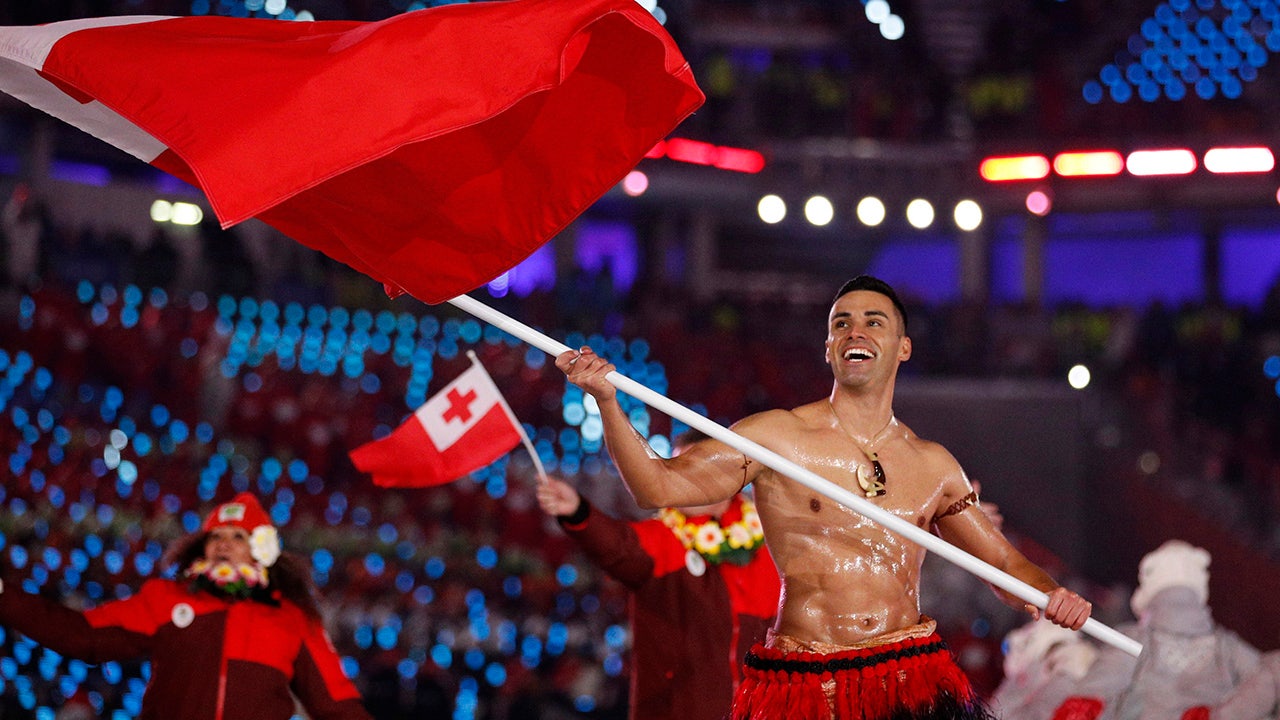
Olympics fans hoping to see Tonga national heartthrob Pita Taufatofua in his signature opening ceremony uniform – or lack thereof – were disappointed on Friday when the country’s viral flag bearer was sporting a more dressed up look.
Taufatofua, who has competed in both the Summer and Winter Olympics, became a fan favorite for his shirtless, oiled-up look in past Games.
Malia Paseka and Pita Taufatofua, of Tonga, carry their country’s flag during the opening ceremony in the Olympic Stadium at the 2020 Summer Olympics, Friday, July 23, 2021, in Tokyo, Japan. (Hannah McKay/Pool Photo via AP)
But rainy weather seemed to cause Taufatofua to button up for this Olympics’ opening ceremony.
“I didn’t recognize him, he had his shirt on,” Hall of Fame quarterback Peyton Manning joked during NBC’s broadcast of the Parade of Nations. “Paris baby oil was stocked full this week.”
Taufatofua competed in Taekwondo in the 2020 Tokyo Olympics and the 2016 Rio Games. He also competed in cross country skiing in the 2018 Olympics in PyeongChang.
Despite qualifying for three Games, Taufatofua announced in April that he had failed to do so for Paris.
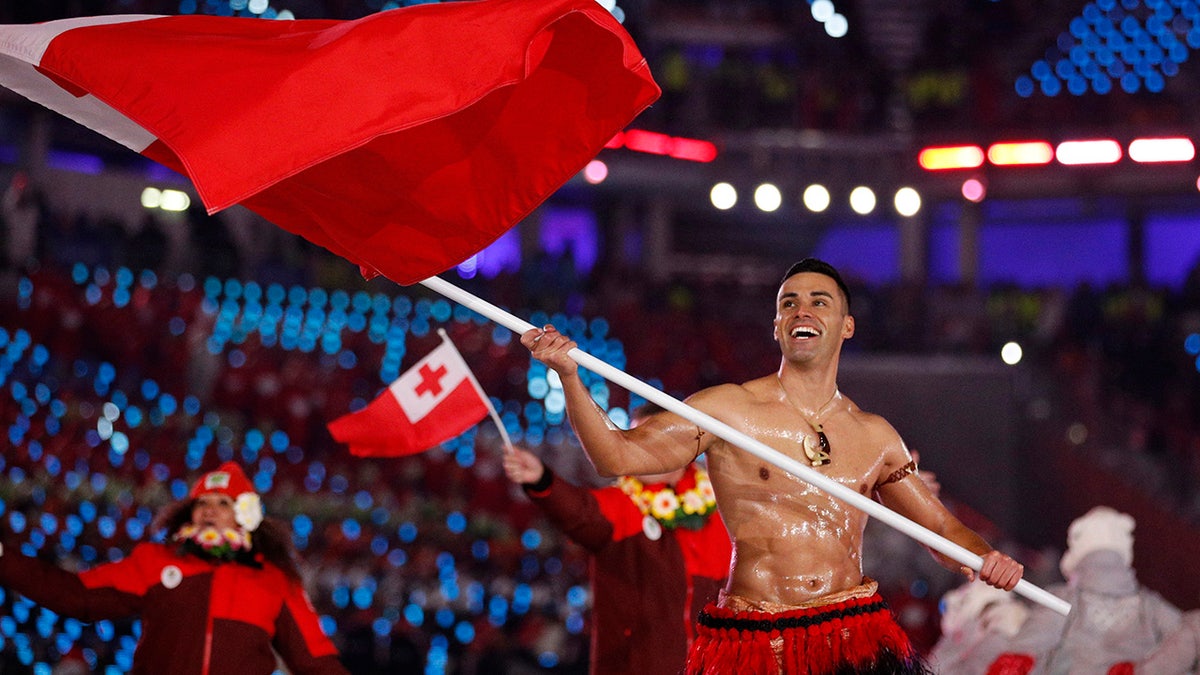
Peta Taufatofua carries a flag of Tonga during the opening ceremony of the 2018 Winter Olympics in Pyeongchang, South Korea, Friday, February 9, 2018. (AP Photo/Jae C. Hong, File)
OPENING CEREMONY NODS TO HEADLESS MARIE ANTOINETTE, MÉNAGE À TROIS RECEIVE MIXED REACTIONS
“This time my team and I fell short of competing at the Paris Olympics. I gave my absolute everything in both the Kayak and Taekwondo qualifiers but missed out on a qualification,” he said in a post on Instagram.
“I’m not kneeling in disappointment. In fact I couldn’t be happier. I’m kneeling to give thanks to God for delivering our team safely through another competition. Its easy to ask for things when you need something, but much harder to give thanks for things when they don’t go your way.
But earlier this week, Taufatofua announced that he would be headed to Paris after all as a flag bearer.
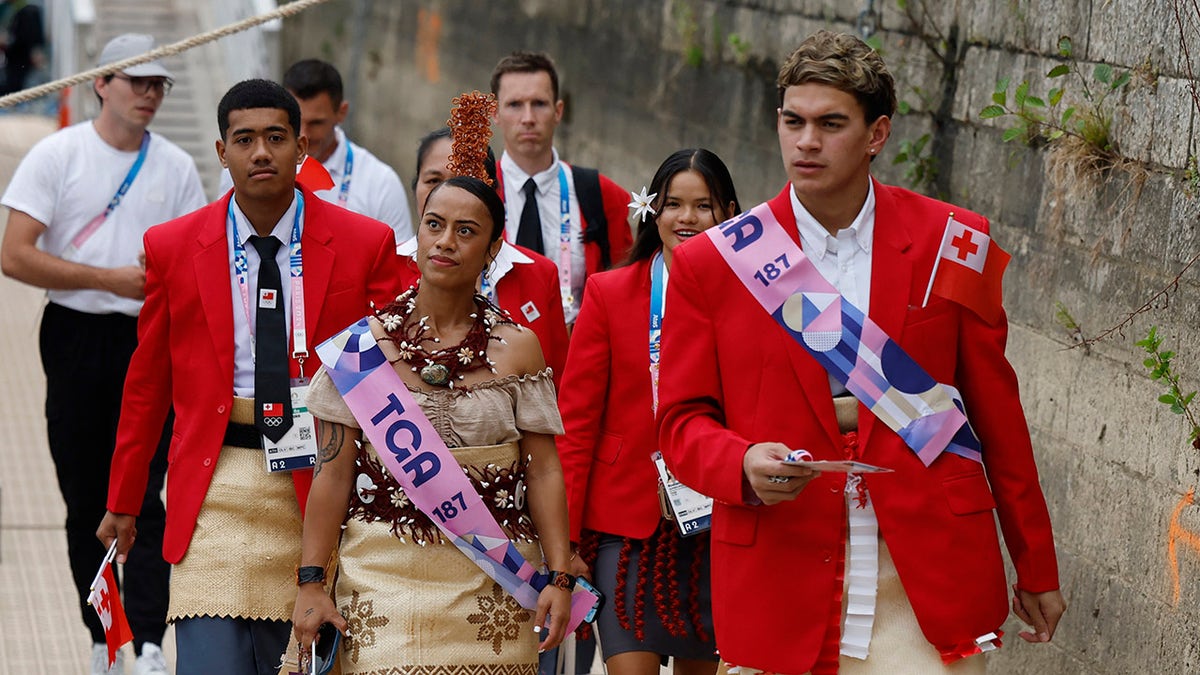
The delegation of Tonga arrives ahead of the floating parade at the start of the Opening Ceremony of the Olympic Games Paris 2024 on July 26, 2024, in Paris, France. (Clodagh Kilcoyne – Pool/Getty Images)
“Life is interesting. After missing out on the Olympic qualifiers, my goal was to focus on other areas of life. I had been defeated in battle with more scars added to the trophy cabinet, but I couldn’t have been happier.
“While not competing, the spirit of the Games called me, opportunities arose and I couldn’t say no. This time the medal I fight for is to be of service, to be there for my fellow athletes, an ear of support or a voice of encouragement. To share what I have learnt and, more importantly, to hear the stories of the other Olympians, these amazing human beings getting ready to represent their nations.”
Follow Fox News Digital’s sports coverage on X, and subscribe to the Fox News Sports Huddle newsletter.
Sports
How trade deadline dynamics have complicated the Dodgers' pursuit of Garrett Crochet
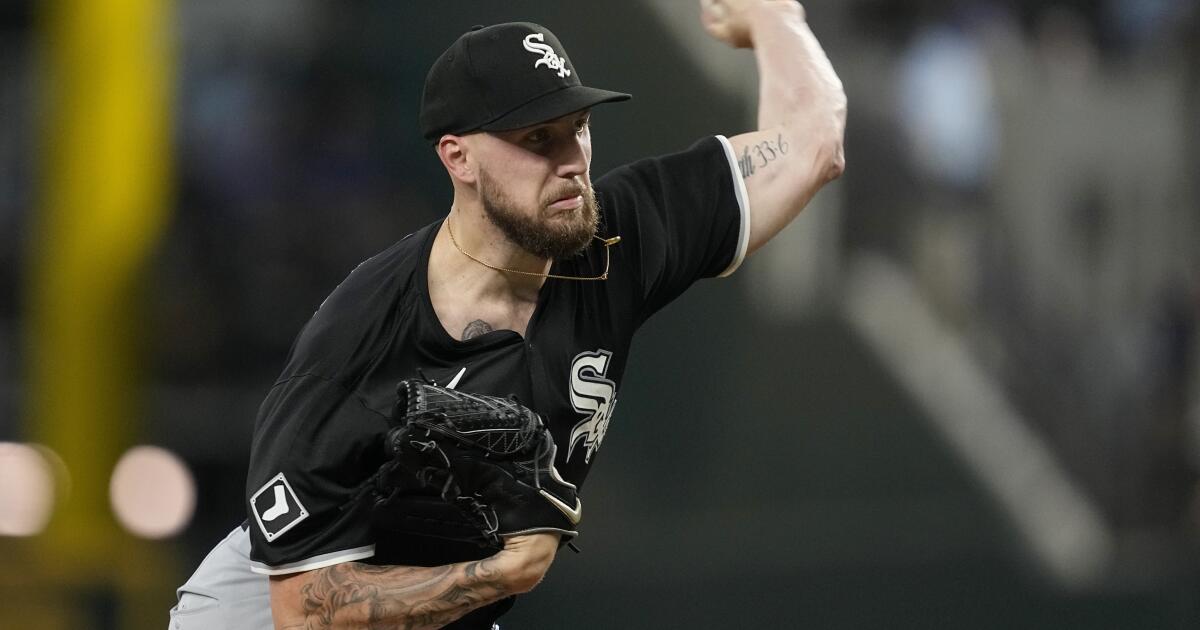
Garrett Crochet believes he can pitch through October.
“With the way my body’s been feeling and responding to the five-day routine,” the Chicago White Sox ace, and top trade deadline target, said at this month’s All-Star Game. “I think that anything’s possible.”
But whether he gets the chance, with the Dodgers or any other contending club, seemingly grows less likely by the day.
In theory, someone like Crochet should fit what is perhaps the Dodgers’ biggest deadline need.
The club wants an “impact” pitcher, as general manager Brandon Gomes described it this week. Crochet will probably be the best option available, a hard-throwing left-hander with a 3.07 ERA in 21 starts this year, more strikeouts (157) than any other pitcher in the American League and two seasons of team control left after this year.
Crochet does, however, have a looming workload problem; one that could diminish — if not eliminate — his chances of being dealt to a contender before Tuesday’s deadline.
In his first full season back from 2022 Tommy John surgery, Crochet has already doubled his career-high for innings, logging 111 this year after never previously surpassing 54. Because of that, Crochet’s workload might need to be limited the rest of the year, with the 25-year-old perhaps requiring a break before the playoffs or a late-season shift into the bullpen.
On Thursday, Crochet then threw a wrench into the process.
According to multiple reports, the left-hander would not only like to remain on a normal starter’s schedule for the rest of the year, but would also want a contract extension from any club that acquires him — reportedly a requirement before he agrees to pitch in October, or even considers some sort of late-season relief role.
The news added another complicated layer to what was already the Dodgers’ biggest trade deadline conundrum.
Even under the simplest of circumstances, lining up on a trade package for the pitcher was proving to be a challenge in itself.
And now, less than a week away from the deadline, the situation is underscoring the Dodgers’ difficulties in this year’s market — where there are no easy deals to address their biggest needs.
Even before Crochet’s desire for a contract extension, several factors were working against the Dodgers in their negotiations with the White Sox.
From Chicago’s point of view, Crochet is as valuable as any commodity on this year’s trade market — barring the Detroit Tigers making the surprise decision to deal Cy Young front-runner Tarik Skubal.
When the White Sox dealt another controllable ace, Dylan Cease, to the San Diego Padres earlier this year, they got four players back, including three of the Padres’ top 10 prospects, according to MLB Pipeline rankings, and one top-100 prospect in the sport overall.
Acquiring Crochet, who has an extra year of team control compared to Cease, figures to cost at least that much.
Crochet’s workload concerns, however, changed the calculation for a team like the Dodgers. If he were unable to serve as a postseason ace this year, it would diminish his short-term value to any contending club. But if he keeps pitching regularly and increases his workload too much, it could create concerns about long-term impacts in the future.
It’s why, while the White Sox would likely target the top of the Dodgers’ farm system — catcher Dalton Rushing and outfielder Josue De Paula would be the biggest potential prizes — the Dodgers would almost certainly be reluctant to part with so much.
De Paula is a 19-year-old high-A slugger ranked as one of MLB Pipeline’s top 100 overall prospects. With a 6-foot-3 frame and powerful left-handed swing, he has received comparisons to Houston Astros star Yordan Alvarez. And as one scout recently described it, his young age and sky-high potential make him, at this juncture, a virtually “untouchable” prospect.
Rushing, the team’s 2022 first-round pick, is a fellow top-100 prospect who is even closer to reaching the majors, as a 23-year-old slugger currently at the double-A level.
Some industry evaluators have wondered whether this deadline could be an optimal time for the Dodgers to move Rushing. After all, his pathway to the majors is blocked, with Will Smith signed to a 10-year extension behind the plate (and Shohei Ohtani locked in for the foreseeable future at DH). Rushing’s value around the sport is at a high point as well, thanks in part to his 25 home runs since the start of last year.
“Obviously, if he gets to the big leagues and crushes it, his stock will go up,” one rival scout said. “But he’s been so good with the bat as a pro that it’s hard to imagine it gets better.”
That means, for the Dodgers, this deadline has really become a question of “opportunity cost” — forcing them to weigh if there are any potential deals even worth considering for such highly touted prospects.
And while, on paper, Crochet might have been a fit, the realities of this year’s market have made most blockbuster moves appear like a long shot.
That’s not to say the Dodgers couldn’t look elsewhere for an impactful deadline splash.
The team has interest in another White Sox star, outfielder Luis Robert Jr. The best rental starter on the market, Jack Flaherty of the Detroit Tigers, is a pitcher they have pursued in the past.
There will be plenty of other names that could fit the Dodgers roster, too, from rental outfielders like Jesse Winker and Tommy Pham (who has expressed interest in joining the Dodgers before), to high-leverage relievers like Tanner Scott and Carlos Estévez (who could shore up the bullpen in lieu of starting pitching reinforcements), and even utility infielders with multiple years of control like Luis Rengifo and Nico Hoerner (who were linked to the team by AM 570 this week).
But, in all likelihood, the Dodgers will struggle to address their biggest need on the mound, with the difficulties surrounding their pursuit of Crochet underscoring the imperfect nature of this year’s deadline market.
-

 World1 week ago
World1 week agoOne dead after car crashes into restaurant in Paris
-

 Midwest1 week ago
Midwest1 week agoMichigan rep posts video response to Stephen Colbert's joke about his RNC speech: 'Touché'
-

 News1 week ago
News1 week agoVideo: Young Republicans on Why Their Party Isn’t Reaching Gen Z (And What They Can Do About It)
-

 Movie Reviews1 week ago
Movie Reviews1 week agoMovie Review: A new generation drives into the storm in rousing ‘Twisters’
-

 News1 week ago
News1 week agoIn Milwaukee, Black Voters Struggle to Find a Home With Either Party
-

 Politics1 week ago
Politics1 week agoFox News Politics: The Call is Coming from Inside the House
-

 News1 week ago
News1 week agoVideo: J.D. Vance Accepts Vice-Presidential Nomination
-

 World1 week ago
World1 week agoTrump to take RNC stage for first speech since assassination attempt
















